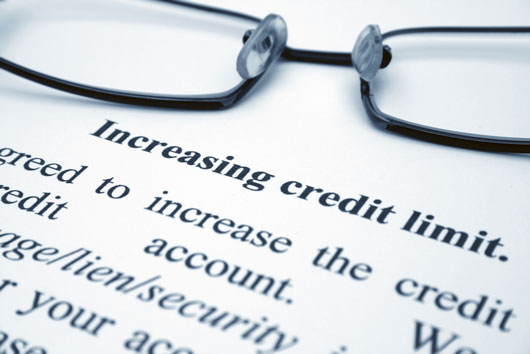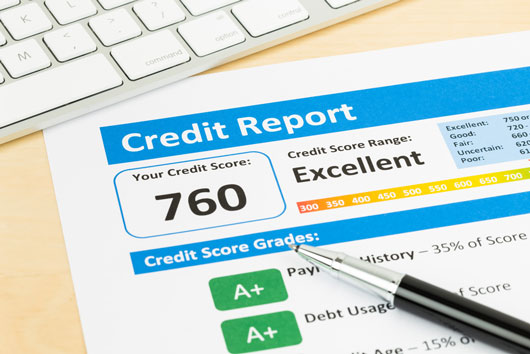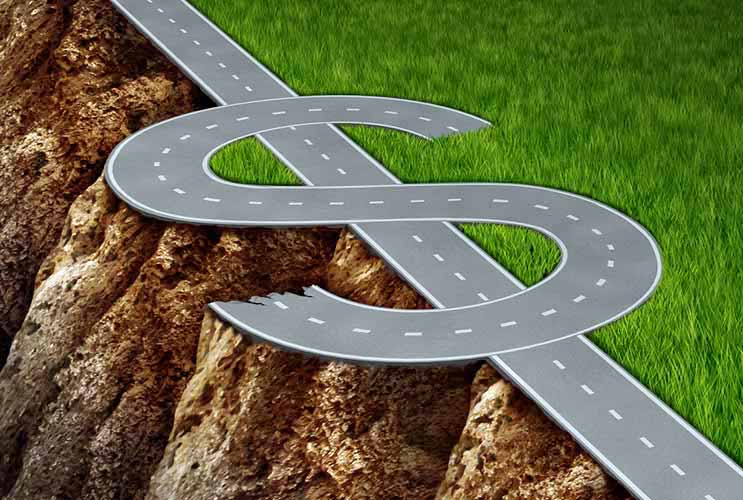
When it comes to your finances and things like how to raise credit score, there are a lot of opportunities to be confused, and quite frankly, overwhelmed. And while it can seem easier to just ignore what you don’t know and assume your money is safe, it’s incredibly important that you stay educated about your funds, starting with your credit score. According to Credit Karma, “a credit score is a three digit number calculated from your data-rich credit report and is one factor used by lenders to determine your creditworthiness for a mortgage, loan or credit card. Your score can affect whether or not you are approved as well as what interest rate you are charged.” OK, so now we know what our credit score is, but why is it important? According to financial expert and NBC Today Show financial editor Jean Chatzky, it’s important you don’t just know what your credit score means, but that you also check it regularly. “Your credit scores are more important than ever as a financial barometer in your life. Lenders look at credit reports and scores naturally, but so do insurance companies (which use it to determine, along with a cocktail of other factors, how much to charge you), employers (which tend to see it as a measure of whether you’ll be a responsible employee) and landlords (which use it to decide if you’ll be a decent tenant.)”
If your credit score is not what you would like it to be—and remember a score of 720 or higher is considered good—there are some simple ways you can improve your score. Chances are you have been making some common mistakes and there are small changes that will make a big difference on your score and your financial future. Here are 10 tips on how to raise credit score right now.
Read Related: The Art of Having ‘Cred: 15 Credit Card Tactics Everyone Should Employ

1. Get Educated About Your Credit Score
The first step to raising your credit score is to find out what it is. The good news is that each year you are allowed one free copy of your credit score from each of the three credit bureaus (TransUnion, Equifax and Experian. You can gather them all at once if you’ve never requested them before, or Credit Karma contributor Jenna Lee suggests that you “pull a different report every four months so you can check up on your credit throughout the year.”

2. Dispute Any Errors on Your Credit Report
Once you access your credit report and credit score, review it closely, look for any mistakes and dispute any errors. And yes, mistakes are fairly common when it comes to your credit report. A recent FTC study found that “one in 20 people have substantial credit report errors—enough to result in at least a 25-point credit score jump once fixed.” That is a big deal that can have a seriously negative impact on your credit score. Go through your report item by item to make sure that there are no mistakes that could unfairly work against you.
3. Use your credit cards less
Many of us rely on our credit cards for most of our purchases, but if you want to raise your credit score your goal is to lower your credit utilization rate, which means that you spend less of the available credit on your cards. Look at what your total credit limit is, then look at how much of that limit you spend each month. Divide your total credit balance (across all cards) by your total credit limit (across all cards) and you’ll see your utilization rate. Credit Karma’s consumer advocate Bethy Hardeman advises “consumers with a credit utilization rate between 1 and 20 percent generally have a higher credit score than consumers with a credit utilization rate over 20 percent.”

4. Request Higher Credit Limits
If you thin it’s unrealistic to lower your spending, you can try to request a higher limit so that your utilization improves. Call your credit card company and request an increased spending limit on your card. They might deny your request, but you won’t know until you try.
5. Pay Your Bills On Time, In Full
This is a bit of a no-brainer, but if you pay your credit card bills on time, and in full each month, your score will go up. Delinquent payments can negatively impact your credit score, and while one late payment won’t ruin your financial future, a pattern of late payments or collections can cause major problems for your credit score.

6. Eliminate small balances on various credit cards
If you have multiple credit cards with small outstanding balances, try to clean up your wallet and pay off the nuisance balances. According to John Ulzheimer, a nationally recognized credit expert formerly of FICO and Equifax, “a good way to improve your score is to eliminate nuisance balances…that way, you’re not polluting your credit report with a lot of balances.”
7. Keep Old (Even Unused) Accounts Open
Even if and when you pay off your balance on your unused cards, don’t cancel those cards right away, as it can look bad for your credit score. You want to show that you have multiple options for credit usage, and you pay those bills on time. Canceling cards just gives you fewer payment options but the same amount of debt.

8. Stay On Top of Your Credit Score
Last but not least, stay on top of your credit score. Even if you checked it recently and everything seemed fine, check it again, and again. Remember, you’re entitled to a free credit report every 4 months, which is a good amount of time to make sure that your credit score is improving and that there are no mistakes doing damage to your credit report. While it may take time, patience and work to improve your credit score, if you don’t keep an eye on it you can’t ensure that your work is paying off.











